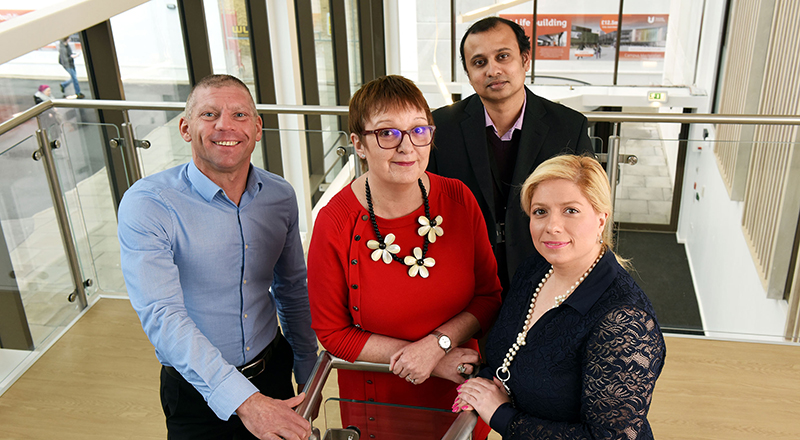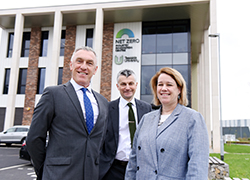Island communities set to benefit from University energy expertise
Energy experts at Teesside University are involved in an ambitious international research project which has the potential to make significant savings to the cost of energy consumption across islands in Europe.

Teesside University is one of the partners in the 10 million euros REACT project, which was officially launched in Barcelona last week. It is being coordinated by Veolia Serveis Catalunya in Spain, a global leader in water, waste and energy management solutions which contributes to the sustainable development of communities and industries.
REACT is co-funded by Horizon 2020, the largest ever EU research and innovation programme, with nearly 80 billion euros funding available over seven years.
The REACT project aims to demonstrate the benefits of renewable energy systems on geographical islands to bring economic benefits, contribute to the decarbonisation of local energy systems, reduce greenhouse gas emissions and improve air quality.
It is hoped the four year project can reduce the cost of energy by up to 60%, saving hundreds of millions of euros across Europe and reducing the annual cost of energy bills by 360 euros per average household.
On geographical islands, energy can cost 400 times more than it does on the mainland due to the use of predominantly diesel generators which are expensive to maintain.
The REACT project is tasked with developing ICT solutions for the planning and management of renewable energy systems across geographical islands, ultimately enabling them to have independent energy systems.
In total, there are 23 organisations from across Europe involved in REACT and Teesside University is the only project partner from England. It has been awarded almost 625,000 euros and will work to identify the social and economic benefits of largely autonomous energy systems on geographical islands.
The Teesside University REACT team is made up of Principal Investigator Tracey Crosbie, Michael Short and Gobind Pillai, all from the School of Science, Engineering & Design, as well as Maryam Shadman-Pajouh, from Teesside University Business School.
They form part of Teesside University’s Smart Systems and Energy Informatics Research Group, which carries out a range of work around intelligent sensing, control and informatics and energy-related applications.
REACT is an innovation project which will take technical solutions from earlier work and apply that knowledge and understanding to implement new ideas.
This project reinforces what can be achieved through shared knowledge and expertise and is an example of best practice in terms of internationally collaborative research.
Teesside University will draw on previous projects including DR BOB, an EU research project into how blocks of buildings can use intelligent electricity systems to maximise energy efficiency, as well as inteGRIDy, which examined the decarbonisation of the electricity grid through the integration and deployment of innovative demand response and smart grid technologies.
Tracey Crosbie said: 'Teesside University has internationally excellent research in this specific area and we will demonstrate how decarbonisation and clean and sustainable energy systems can stimulate social and economic change.
'It must have an impact on ordinary people and enabling geographical islands to have independent energy systems can save huge amounts of money, as well as have a profound positive impact on the environment.'
The work from REACT will initially be tested on three islands – La Graciosa in Spain, San Pietro in Italy and the Aran Islands, off the coast of Ireland. There will then be follow-up work on Gotland in Sweden, Lesbos in Greece, Majorca, Reunion Island in France and the Isle of Wight.
Tracey added: 'The whole project is about how we can decarbonise the energy systems and how we can demonstrate the social and economic benefits of doing that.
'We are currently focussing on Europe but, if successful, the work could be applied globally.'
As well as the current REACT team at Teesside University, the funding is allowing them to appoint additional resource in the form of a Senior Research Fellow and a one year research post.
Michael Short, who leads the University's Smart Systems and Energy Informatics Research Group, said: 'This is an extremely important and prestigious project to be involved in and combines the expertise of a range of organisations across Europe to make a significant impact in terms of smart energy solutions.
'It reinforces what can be achieved through shared knowledge and expertise and is an example of best practice in terms of internationally collaborative research.'
 International partnership signed with prestigious American
...
International partnership signed with prestigious American
... Teesside University academics join prestigious network of
...
Teesside University academics join prestigious network of
... Curatorial studies culminating with international art
...
Curatorial studies culminating with international art
...